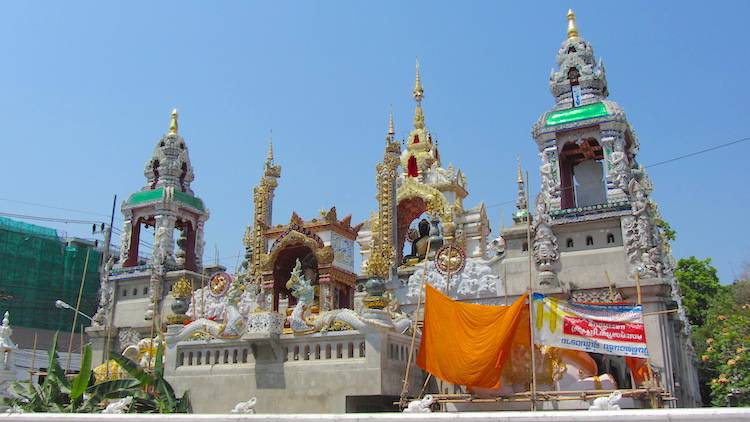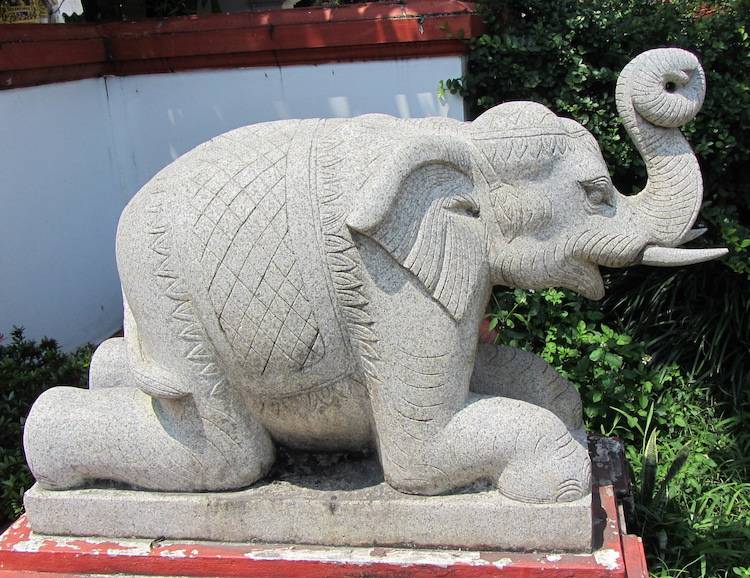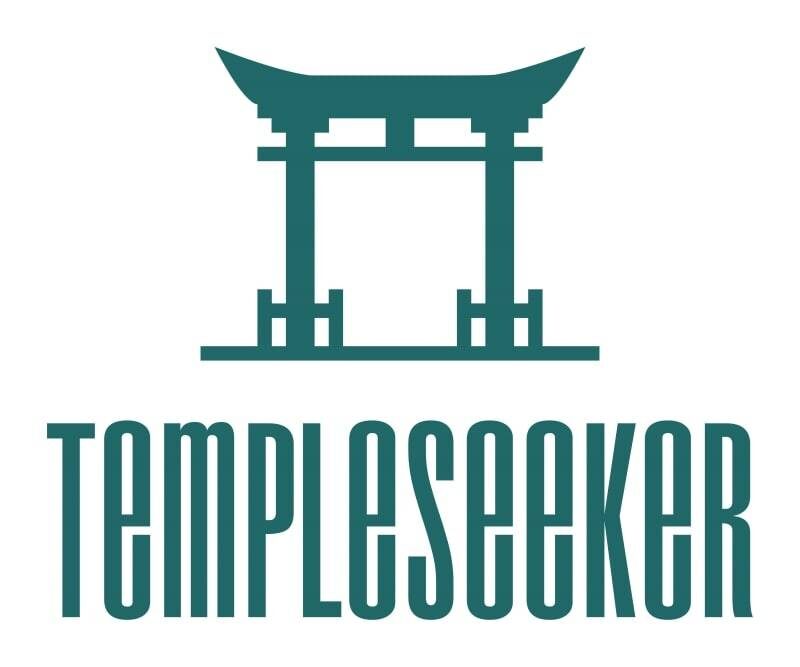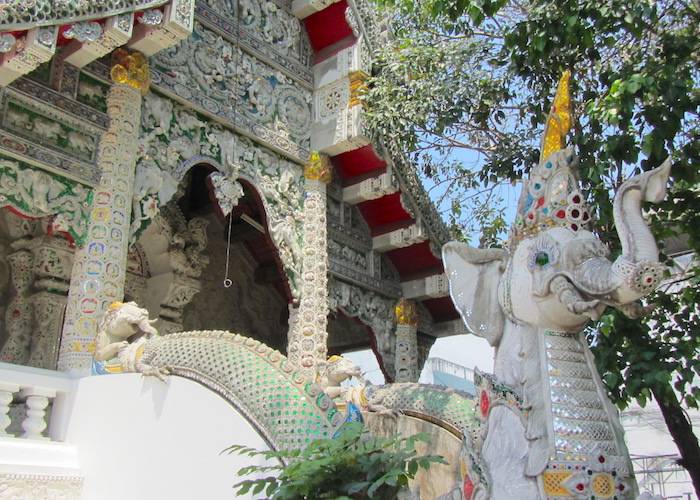Spending more than just a few days in Chiang Rai? I recommend a visit to the Elephant temple (Temple of the crouching elephants), officially called Wat Ming Muang (not to be confused with Wat Mung Muang!)
How to get to Wat Ming Muang
It’s easy to walk to Wat Ming Muang from central Chiang Rai – the city is small and easy to get around on foot or bicycle. I walked to the temple from Connect Hostel. The temple is located in the Northern part of the city near to the Night Market. While you are in the area I would also recommend that you check out Wat Klang Wiang (informally known by travellers as the fire temple) and Wat Phra Kaew (the temple of the Jade Buddha).
Visiting Wat Ming Muang Chiang Rai
It is free to enter Wat Ming Muang, but it’s nice to make a donation for the upkeep of the temple and the local Buddhist community. You might also like to read my article on the Thailand temple dress code, because it is important to dress conservatively and respectfully. Cover your legs and shoulders, and women shouldn’t have cleavage on display. Remember to remove your shoes before entering the main Vihara.
Visiting times – 8am – 4pm
Wat Ming Muang – The Crouching Elephant Temple of Chiang Rai
Wat Ming Muang is not as famous as some of the other temples in Chiang Rai such as Wat Rong Suea Ten (blue temple) and Wat Rong Khan (white temple). However, it’s a really beautiful surprise – modern and decorative. If you only have one day then prioritise the blue temple, white temple and the black house (Bandaam Museum) over this. However, if you are lucky enough to spend a few days in Chiang Rai then it’s worth popping in.
There is part of the main temple that is still being built (it was still under construction in April 2018).

Wat Ming Muang is free to go in and worth a look simply for the beautiful elephant statues.

The temple was built in Lanna style by Queen Ta La Mae Sri, King Mengrai’s wife as a memorial for his mother. Mengrai was the 25th king of Ngoenyang and the first king of Lanna. He established a new city, Chiang Mai, as the capital of the Lanna Kingdom Lanna Kingdom (an Indianized state centred in present-day Northern Thailand from 13th to 18th centuries).

Vihara Mai Lai Khum
The main wooden vihara (lay person’s prayer hall) is Viharn Mai Lai Khum, a mixture of Thai Yai (Myanmar) and Lanna.
Always look up at Thai temples – the roof ridge is decorated with 34 swan figures.
Luang Phor Phra Sri Ming Muang
The ancient Buddha image stored at the temple is ‘Luang Phor Phra Sri Ming Muang’. The ancient stucco Buddha image is over 400 years old. The rays of light stream from the hair bun of Buddha’s head in a lotus shape, carved from semi precious gemstones.
Ming Muang Stupa
Head round to the back of the temple to see the Myanmar influences on the Ming Muang Stupa (Chedi). It houses the relics of Chao Nang Talamae Sri.
Sacred Water Well ‘Chang Mub’
It is believed that Chang Mub is an ancient water well, used to bring travellers good fortune before a long journey.
Visiting Chiang Rai?
Where to stay – Connect Hostel
Where to eat – Barrab, Sawaddee, Smiling Moon Cafe.
You might also like to read about the Black House Chiang Rai and the Blue temple Chiang Rai – don’t miss them!

